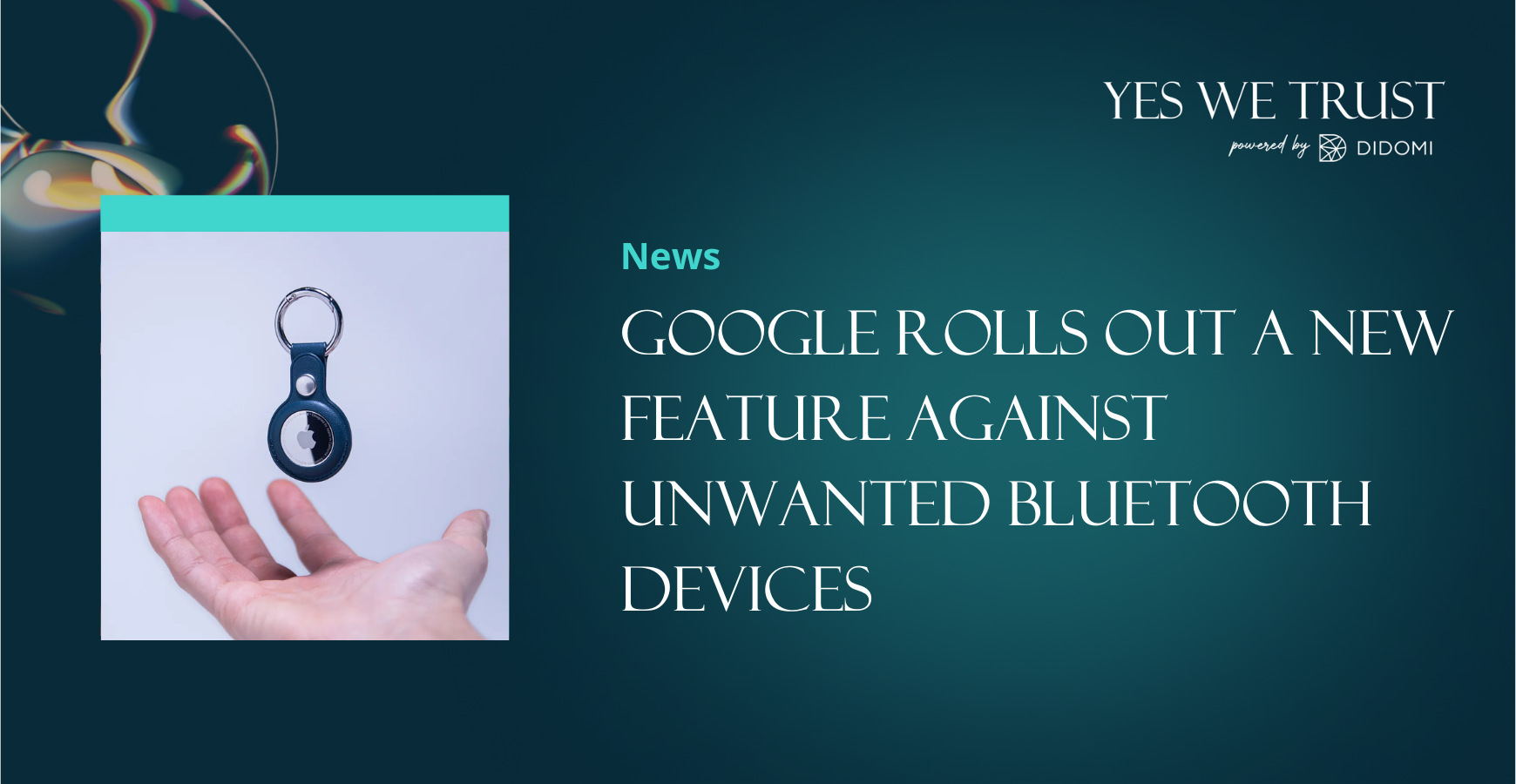Summary
The end of July marked the beginning of Google rolling out a feature as part of the Find My Device network to warn users about unwanted AirTags around them. Along with Bluetooth safety measures, this feature would help users who do not own an iPhone stay alert and get notified in case of stalking and tracking.
AirTags were originally created to act as a key finder. Users are able to pair their small, keychain-like device with their iPhone using the “Find My" app in order to keep track of their belongings: handbags, keys, and more.
|
“Precision Finding uses our U1 chip to get the precise distance to your AirTag. iPhone fuses that data with input from the camera, accelerometer and gyroscope to give you visual, haptic and audible feedback, guiding you right you AirTag.” - Apple Event 2021 (source: Apple) |
However, it has been reported that the Apple device has been used for harassment and threats over the years. In the first week of December 2022, Apple was sued by two women who expressed that their exes used AirTags to stalk their whereabouts and location, which put their safety at risk.
Apple addressed the problems created with AirTags by adding new privacy warnings and alerts. But, this did not help Android users as they did not have any AirTag detection capabilities on their phones.
In May 2023, Apple and Google announced a joint collaboration to fix the issues alerted by Android users. The companies will roll out features to help warn users against all Bluetooth devices traveling with them, regardless of the brand.
|
“We built AirTag and the Find My network with a set of proactive features to discourage unwanted tracking — a first in the industry — and we continue to make improvements to help ensure the technology is being used as intended. This new industry specification builds upon the AirTag protections, and through collaboration with Google results in a critical step forward to help combat unwanted tracking across iOS and Android.” - Ron Huang, Apple’s vice president of Sensing and Connectivity (Source: TechCrunch) |
Dave Burke, Google’s Vice President of Engineering for Android, also stated that Bluetooth trackers have created tremendous user benefits, but also bring the potential of unwanted tracking, which requires industry-wide action to solve.
Have you ever witnessed misuse of AirTags? Join the conversation in our Yes We Trust community, a free discussion group for data privacy professionals and enthusiasts, on LinkedIn:







